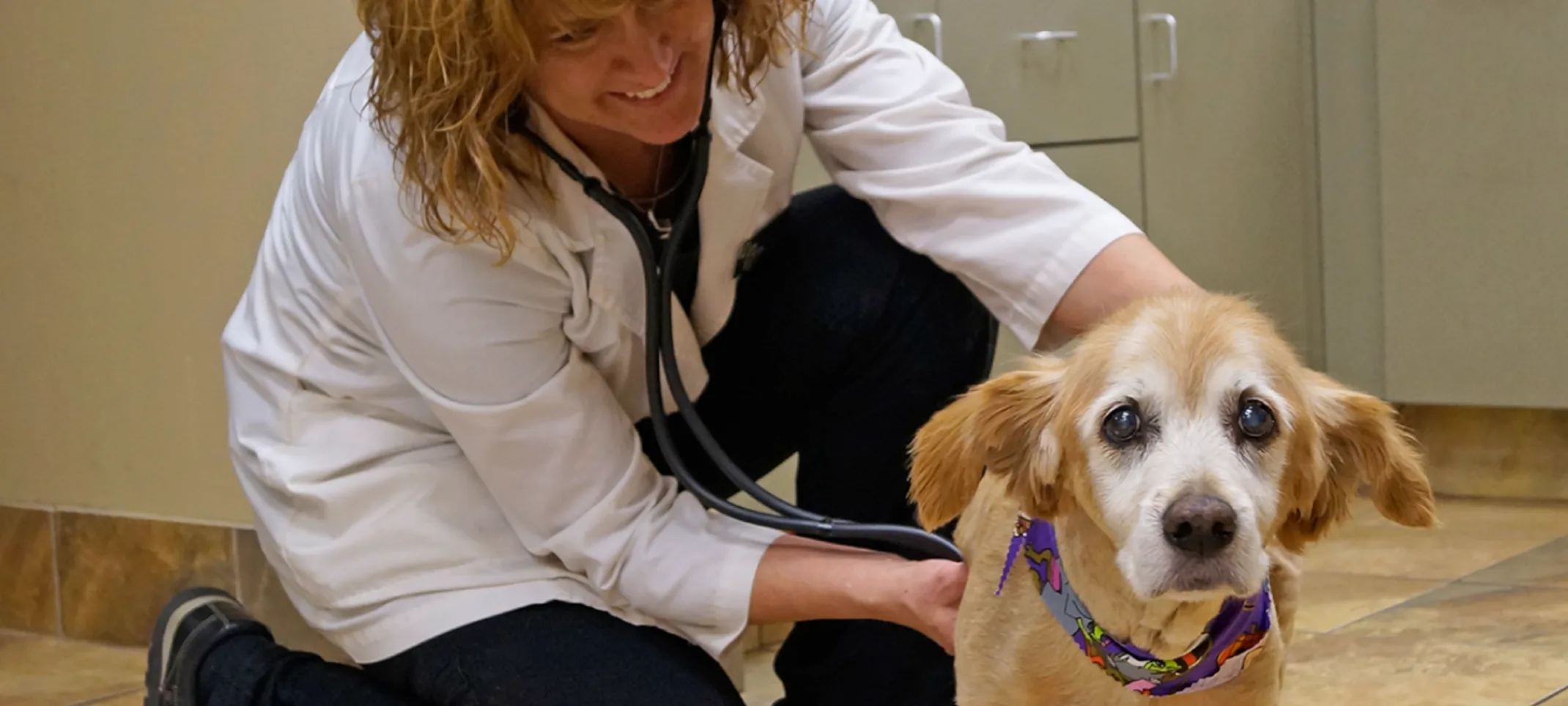Roanoke Animal Hospital TX
Senior Pets
Taking care of your senior pet and what to watch for as they age.

Senior Wellness
In veterinary medicine, there is no substitute for a thorough history and physical exam for diagnosing disease, especially in “Senior” pets. However, there are some conditions that do need more thorough investigation. Regular blood work and urinalysis (Senior Screen) can be extremely useful to your veterinarian in a number of ways with regard to your older pet:
Safety monitoring for long term medication administration: Many medications commonly used in older pets, such as anti-inflammatories for osteoarthritis, can in some cases have serious potential side effects, such as injury to the liver and kidneys over time. Monitoring for changes can allow your veterinarian to adjust medications, continue to treat their condition, and do so with greater safety.
Safety screening for anesthesia procedures: “Age is not a disease,” but elderly pets are more statistically likely to have some age related problems. Blood work and urinalysis can help identify hidden problems prior to anesthesia and allow your veterinarian to make adjustments in a treatment plan to maximize safety for pets undergoing general anesthesia.
Early disease detection: This is very important in the elderly pet. Subtle changes that might indicate serious disease, often go undetected at home, and may be attributed to the pet simply “getting old”. Annual Senior Screen can help your veterinarian identify developing problems earlier, and allow treatment to be begun earlier, increasing your pet’s quality and quantity of life.
8 Areas to Watch for Subtle Signs In Your Aging Pet
Common conditions in various organ systems in the older pet and some often subtle signs that might indicate serious developing problems in the older pet:
Dental: bad breath, red swollen gums, extra tissue
Liver: loss of appetite, weight loss, gastrointestinal upset, increased thirst and/or urine production
Kidney: increased thirst, decreased appetite, weight loss, gastrointestinal upset, back pain
Heart/Lungs: exercise intolerance, cough, labored breathing, weight loss, enlarged abdomen
Musculoskeletal: lameness, exercise intolerance, reduced appetite, discomfort/pain
Endocrine: unexplained weight change, increased appetite without weight gain, gastrointestinal upset, increased thirst and/or urination, skin/coat abnormalities
Cancer: masses, unexplained bleeding, swollen lymph nodes, loss of appetite, vomiting, diarrhea
Gastrointestinal: vomiting, diarrhea, weight loss, discolored stools
If you notice these or other signs in your pet, (especially older ones), do not assume they are “just getting old”. Have them checked out by your veterinarian. Regular physical exams, blood work, urinalysis, x-rays, and other testing methods can help your veterinarian help you continue to love and care for your beloved animal companion.
